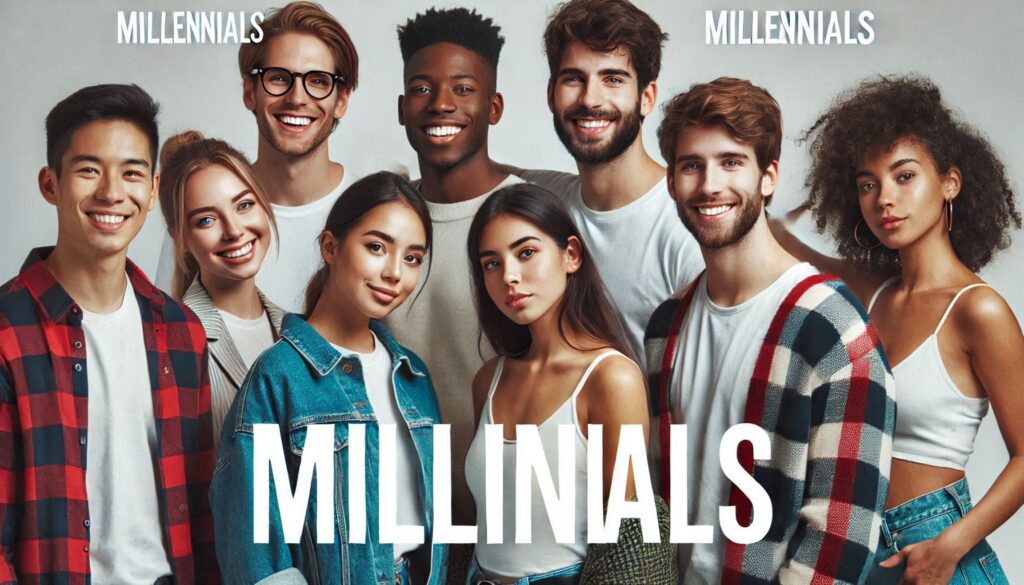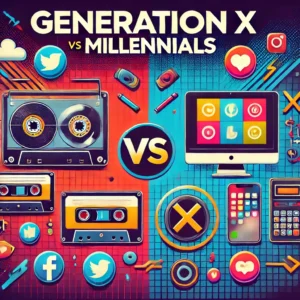Life Style
Understanding Millennials: Characteristics, Challenges, and Impact
Understanding Millennials – Explore the defining traits, challenges, and societal impact of millennials. Learn how this tech-savvy, value-driven generation is reshaping industries and driving cultural change.
Millennials, also known as Generation Y, represent the demographic cohort born between 1981 and 1996. As one of the most studied generations, millennials have significantly shaped modern society, culture, and the global economy. This article delves into the defining characteristics of millennials, their challenges, and their profound influence.
Who Are Millennials?
Millennials are individuals currently in their late 20s to early 40s. They follow Generation X and precede Generation Z. This generation has grown up during a period of rapid technological advancement, economic shifts, and social change.
Key Characteristics of Millennials
- Tech-Savvy: Millennials are the first generation to grow up with the internet, social media, and smartphones. Technology deeply influences their daily lives.
- Education-Focused: Many millennials have pursued higher education, making them one of the most educated generations.
- Value-Driven: They prioritize experiences, sustainability, and brands that align with their values.
- Diverse and Inclusive: Millennials embrace diversity and advocate for equality across gender, race, and social status.
Challenges Faced by Millennials
Despite their strengths, millennials encounter unique challenges that set them apart from previous generations.
1. Economic Pressures
- Student Loan Debt: Many millennials carry significant student loan debt due to the rising costs of higher education.
- Housing Affordability: Soaring housing prices make it difficult for many millennials to buy homes, leading to a preference for renting.
- Job Market Instability: Economic recessions, such as the 2008 financial crisis and COVID-19 pandemic, have disproportionately affected millennials’ career growth.
2. Mental Health Concerns
- Millennials report higher levels of anxiety, depression, and burnout compared to other generations.
- Social media’s influence often exacerbates feelings of inadequacy and comparison.
3. Work-Life Balance
- Millennials prioritize work-life balance but often struggle to achieve it in demanding work environments.
- The rise of remote work has offered some flexibility, but it also blurs the lines between personal and professional lives.
Millennials’ Impact on Society
Millennials have reshaped various industries and societal norms through their preferences and values.
1. Workplace Transformation
- Emphasis on Flexibility: Millennials’ demand for remote work and flexible schedules has influenced workplace policies.
- Focus on Purpose: They seek meaningful work, pushing companies to prioritize corporate social responsibility.
2. Consumer Behavior
- Millennials prefer experiences over material goods, fueling industries like travel, dining, and entertainment.
- They support brands that champion sustainability, diversity, and ethical practices.
3. Technology and Innovation
- Millennials have driven the adoption of technologies such as social media, e-commerce, and streaming platforms.
- Their demand for convenience has influenced the rise of app-based services and gig economy platforms.
How to Connect with Millennials
Businesses, employers, and organizations must adapt to effectively engage with millennials. Here’s how:
1. Embrace Technology
- Use digital platforms and social media to reach millennials where they are most active.
2. Focus on Authenticity
- Millennials value genuine interactions and transparency. Avoid overly polished or insincere messaging.
3. Offer Flexibility
- Provide options for remote work, flexible hours, and personalized experiences.
4. Support Social Causes
- Millennials align with brands and organizations that champion social and environmental causes.
Conclusion
Millennials are a dynamic and influential generation that continues to shape the future. Understanding their characteristics, challenges, and impact is crucial for fostering meaningful connections with them. By embracing their values and addressing their needs, businesses and society can harness the power of millennials to drive positive change.
Whether you’re a brand looking to engage this generation or an individual seeking to understand their role in the world, millennials represent a unique blend of challenges and opportunities that cannot be ignored.





